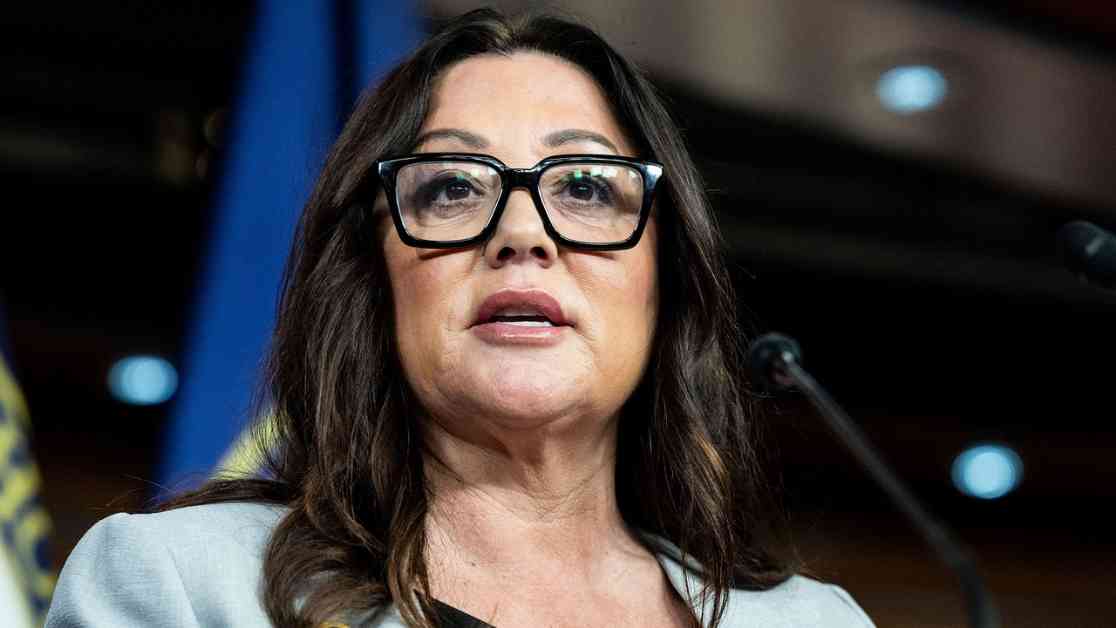Lori Chavez-DeRemer, a Republican congresswoman from Oregon, is making waves as Donald Trump’s nominee for the Department of Labor. Raised by a Mexican American Teamster father in California, she has a unique background that has influenced her views on labor and union support. Despite losing her recent re-election bid, Chavez-DeRemer has pivoted to a new campaign for Labor Secretary, backed by the Portland-area Teamsters council, marking a significant shift in support for a Republican candidate.
The nomination of Chavez-DeRemer has sparked both controversy and curiosity within the labor movement. Sean O’Brien, president of the Teamsters union, has endorsed her as a champion for American workers, highlighting a potential shift in party dynamics. While traditionally aligned with the GOP during her tenure in Congress, Chavez-DeRemer has co-sponsored progressive bills like the PRO Act and the Public Service Freedom to Negotiate Act, signaling a departure from strict party lines.
As the confirmation process for Chavez-DeRemer unfolds, she will face scrutiny from the Committee on Health, Education, Labor, and Pensions (HELP) before a full Senate vote. If appointed, she will lead a vast agency overseeing various labor laws impacting millions of workers nationwide. However, her nomination has not been without opposition, with Senator Rand Paul expressing concerns over her advocacy for the PRO Act, setting the stage for a contentious confirmation process.
Despite her promises to support American workers and find pragmatic solutions, Chavez-DeRemer’s alignment with Trump’s policies has raised questions about her ability to enact meaningful change within the labor department. The clash between pro-union sentiments and the administration’s agenda, led by figures like Elon Musk, adds a layer of complexity to her potential role as Labor Secretary. The recent presence of Musk’s DOGE department at D.O.L. headquarters has sparked protests and legal action from labor groups, highlighting the broader implications of corporate influence in government agencies.
Trump’s executive orders targeting diversity and civil rights efforts within the D.O.L. have further complicated Chavez-DeRemer’s potential impact on labor policies. Rescinding affirmative action measures and threatening federal funding for diverse contractors have raised concerns about the erosion of worker rights and protections under the current administration. The broader implications of these policy changes on job training programs and workplace diversity initiatives underscore the challenges facing labor advocates under the Trump administration.
As the confirmation process unfolds and Chavez-DeRemer navigates the complexities of her potential role as Labor Secretary, the labor movement faces a critical juncture. Balancing the demands of workers, party affiliations, and corporate interests will require a delicate dance that could shape the future of labor policies in the United States. The intersection of political ideologies, economic agendas, and worker rights underscores the importance of a nuanced approach to labor issues in the current political landscape.
In conclusion, the nomination of Lori Chavez-DeRemer for Labor Secretary represents a pivotal moment for the labor movement in the United States. Her background, political affiliations, and policy stances have sparked debates and discussions within the labor community, highlighting the complexities of navigating labor issues in a polarized political environment. As she faces the confirmation process and potential challenges ahead, the role of the Labor Secretary in shaping worker protections and rights remains a critical aspect of the broader conversation around labor policy in the country.












